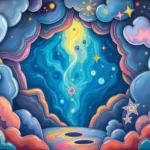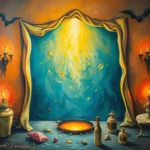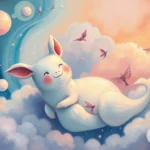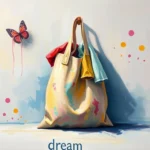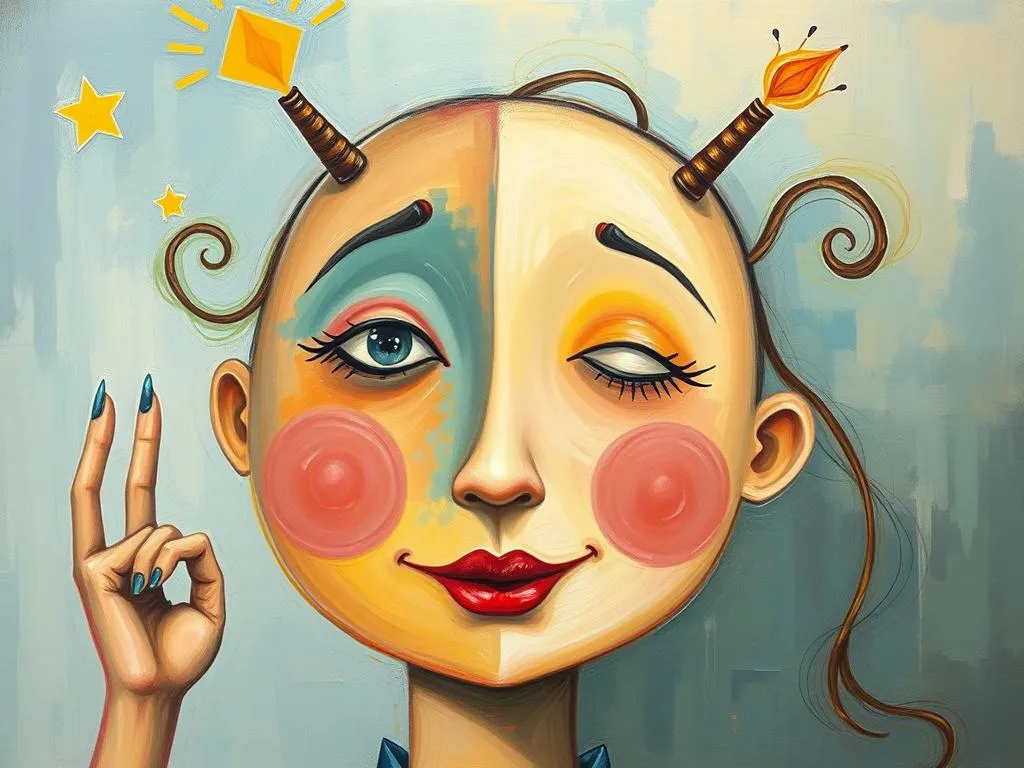
Have you ever woken up from a dream where you encountered a face that felt strangely familiar yet completely opposite to the one you know? Perhaps it smiled when you felt sad, or its eyes held a depth of sorrow while you were laughing. These dreams can feel unsettling, leaving you with lingering questions about their meaning and significance. The symbolism of the opposite face can serve as a profound mirror reflecting the complexities of our emotions, desires, and even our hidden selves.
In this article, let’s embark on a journey through the rich tapestry of dream symbolism, exploring what the opposite face signifies across different cultures, psychological frameworks, and personal experiences. By the end, you’ll have practical insights to help you navigate this fascinating aspect of your dream life. So, let’s delve deeper into the meaning behind those puzzling faces that visit us in our dreams.
Reflections of Duality: Deciphering the Opposite Face
The opposite face in dreams often symbolizes the dual nature of human experience. It may represent the contradictions we face within ourselves—joy and sorrow, confidence and doubt, or love and fear. This duality is deeply rooted in various cultural perspectives. For instance, in many Eastern philosophies, such as Taoism, opposites are seen as complementary forces that create balance. The concept of yin and yang teaches us that every element contains its opposite, leading to harmony.
In the realm of psychology, the opposite face can be linked to Carl Jung’s theory of the shadow self. Jung believed that the shadow represents the parts of ourselves that we deny or repress. Encountering an opposite face in a dream may signal that there’s a neglected aspect of your personality seeking acknowledgment. Perhaps you’ve been avoiding your feelings of anger or sadness, or maybe you’ve masked your true self behind a facade of happiness. In this way, the opposite face acts as a catalyst for self-discovery, urging you to confront and integrate these hidden parts.
The emotional response you have towards this face also plays a significant role in its interpretation. A positive feeling may indicate an embrace of your shadow, while a negative feeling could suggest fear or resistance. By recognizing these emotions, you can begin to unearth the underlying messages your subconscious is trying to convey.
Masks We Wear: Scenarios of the Opposite Face Encounter
Understanding the opposite face in dreams can be nuanced, as its meaning often hinges on the context of your personal life and emotions. Here are some scenarios that illustrate how the concept of the opposite face might manifest in your dreams, revealing deeper layers of your psyche:
1. The Joyful Stranger
You dream of a stranger with a radiant smile, but you feel a profound sadness within. This face embodies your desire to project happiness while grappling with unexplored grief. The dream is a reminder to confront and process your emotions, rather than masking them with a cheerful exterior.
2. The Familiar Yet Unfamiliar
You encounter a close friend in your dream, but their face is altered—perhaps they wear a mask or their features seem exaggerated. This dream could reflect your evolving relationship and the changes you perceive in them or yourself. It invites you to explore whether you’ve lost touch with certain aspects of this friendship or if there are unspoken feelings that need addressing.
3. The Child’s Face
In your dream, you see a child’s face that looks like yours but carries an expression of fear. This scenario could signify unresolved childhood traumas or insecurities that still haunt you. The dream encourages you to return to that child within, nurturing and reassuring them, ultimately leading to healing.
4. The Shadowy Figure
You dream of a shadowy figure that looks like you but has a sinister demeanor. This figure could symbolize your repressed fears or negative traits, beckoning you to confront the darker sides of your personality. Rather than shunning this shadow, the dream suggests embracing it as part of your holistic self.
5. The Opposite Gender
You dream of a face that is the opposite gender to yours. This scenario might reflect your exploration of gender identity or the traits you associate with masculinity or femininity. The dream invites you to examine how these qualities manifest in your life and how they contribute to your overall sense of self.
Through these scenarios, it becomes apparent that the opposite face is not merely a puzzling image; it serves as a beacon, guiding you toward deeper understanding and acceptance of your multifaceted self.
Embracing Wholeness: Your Journey Beyond the Dream
The journey of understanding the opposite face in your dreams is ultimately one of personal growth. Dreams have the power to illuminate the hidden corners of our psyche, leading us toward greater self-awareness and acceptance. Here are some practical insights to assist you in this transformative process:
1. Reflect on Your Emotions
After experiencing a dream with an opposite face, take time to journal your feelings. Ask yourself what emotions surfaced during the dream and how they relate to your waking life. By exploring these feelings, you may uncover unresolved issues or desires.
2. Engage in Active Imagination
Inspired by Jung’s methods, try engaging in active imagination. Visualize conversations with the opposite face, allowing it to express its thoughts and feelings. This dialogue can foster a deeper understanding of the aspects of yourself you might have neglected or feared.
3. Seek Balance
Recognize that both positive and negative emotions coexist within you. Embrace the idea of balance—acknowledge your strengths while also confronting your weaknesses. This holistic acceptance can lead to a more authentic and fulfilling life.
4. Create Rituals of Self-Care
Incorporate practices that nurture both sides of your personality. This could involve activities that promote joy, like art or music, alongside those that encourage introspection, such as meditation or therapy. Balancing these practices can help you integrate the lessons of your dreams into daily life.
5. Share Your Dream Experiences
Discuss your dreams with trusted friends or a therapist. Sharing can provide different perspectives and insights, helping you unravel the symbolism more effectively. Often, others can see patterns or connections that you might overlook.
As you navigate the complexities of your inner world, remember that every dream, especially those with an opposite face, has the potential to guide you toward greater self-discovery. Embrace these dreams as invitations to explore your multi-dimensional self, for within the layers of contradiction lies the beauty of your wholeness.
In the end, the opposite face you encounter in your dreams is not just a reflection of your fears or hidden aspects; it is a powerful reminder of the complexity of human existence. By embracing both sides of your personality, you pave the way for profound transformation and growth. As you wake from this journey, ask yourself: What hidden truths might my opposite face reveal to me today?
